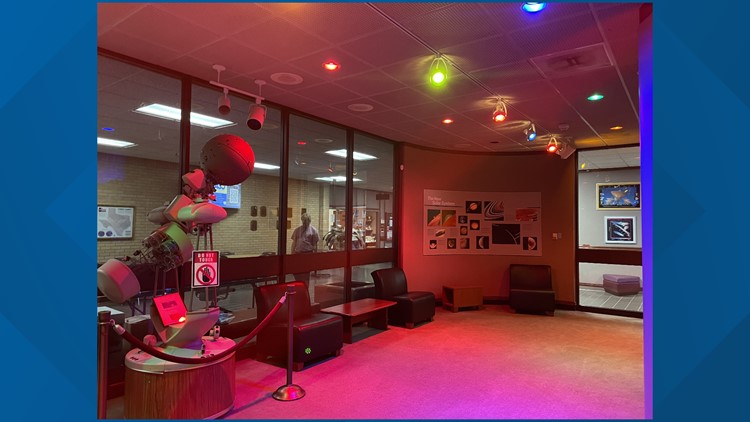SAN ANGELO, Texas — The Angelo State University Planetarium has released its schedule for spring 2024.
Twenty-two different full-dome public astronomy shows will be presented for the spring schedule that begins Wednesday, Jan. 24, in the Vincent Building at 2333 Vanderventer St.
Shows will run weekly at 7 p.m. Wednesdays and Thursdays through April 24, with a break for ASU's Spring Break (March 11-15).
All shows are open to the public for $3 for adults and $2 for children, active military and senior citizens. ASU students, faculty and staff are admitted free.
Planetarium shows will run as follows:
- Wednesday, Jan. 24 - Black Holes: The Other Side of Infinite
- Thursday, Jan. 25 - Faster than Light: The Dream of Interstellar Flight
- Wednesday, Jan. 31 - Forward to the Moon
- Thursday, Feb. 1 - One Sky
- Wednesday, Feb. 7 - The Hot and Energetic Universe
- Thursday, Feb. 8 - Birth of Planet Earth
- Wednesday, Feb. 14 - Solar Superstorms
- Thursday, Feb. 15 - Secret Lives of Stars
- Wednesday, Feb. 21 - Exoplanets*
- Thursday, Feb. 22 - Tales of the Maya Skies
- Wednesday, Feb. 28 - IBEX: Search for the Edge of the Solar System
- Thursday, Feb. 29 - Totality Over Texas
- Wednesday, March 6 - Totality Over Texas
- Thursday, March 7 - Expedition Reef*
- Wednesday, March 20 - Cosmic Journey: A Solar System Adventure
- Thursday, March 21 - Totality Over Texas
- Wednesday, March 27 - Totality Over Texas
- Thursday, March 28 - From Earth to the Universe
- Wednesday, April 3 - Forces of Nature
- Thursday, April 4 - Totality Over Texas
- Wednesday, April 10 - Saturn: Jewel of the Heavens
- Thursday, April 11 - Passport to the Universe
- Wednesday, April 17 - Astronomy: 3,000 Years of Stargazing*
- Thursday, April 18 - Super Volcanoes
- Wednesday, April 24 - Einstein's Gravity Playlist
- Thursday, April 25 - The Cowboy Astronomer
More details are available at angelo.edu/planetarium and on Facebook at facebook.com/AngeloStatePlanetarium.
* Purchase of these shows was funded through ASU's Hispanic Serving Institution-Science, Technology, Engineering and Mathematics (HSI-STEM) grant from the U.S. Department of Education.



